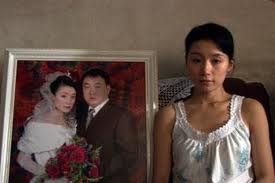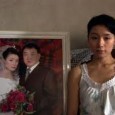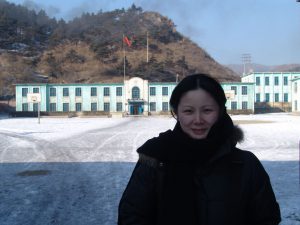
2009 Vancouver International Film Festival – Dragons and Tigers Award
2009 Hong Kong International Film Festival – Golden Digital Prize
the 65th Venice Film Festival
Directed by Emily Tang
produced by Chow Keung, Jia Zhangke, Li Xiudong
Synopsis:
Two women cross paths at a turning point in their lives. Strangers and very different, yet somehow their pasts and futures may share a lot in common.
Stuck in a dreary industry town of northeastern China, troubled 21-year-old Li finally gets the chance to step out and see the world when a disabled man asks her to help him carry a painting to Shenzhen, far south near Hong Kong. Although she loses trust in men’s thin promises, Li refuses to go home and faces a hard life in Shenzhen.
Jenny will encounter Li on a street corner in Shenzhen. Jenny is in the midst of a divorce. For no apparent reason, she has chosen to leave the Hong Kong life she had always dreamed of and struggling so long to attain.
 Background Story:
Background Story:
With the introduction of the opening-up policy in the late 1970s China saw great social transformation and rapid economic growth. But the reform also brought about big disparities to different regions. Many of the huge enterprises under the former planned economy system in northeast China went bankruptcy due to the great impact of the new economy. Millions of workers who had previously enjoyed free welfare provided by the state were now made redundant and thrown into the maelstrom of the free market economy. Their children also realized that they could hardly find a job in their home cities.
In the countryside tens of millions of peasants left their land behind and went in search of jobs and a better life in the cities. Together with the laid-off workers and their children, they flood into the coastal cities of South China. They provided cheap labor that were an integral part of the global chain of production. This southward wave of emigrants reached its peak in the whole 1990s after former leader Deng Xiaoping issues the speeches in this South China tour in 1992, as a way to re-instate the opening policy and revive the economy. They city of Shenzhen attracted many of these migrants because of its proximity to Hong Kong. Today 10 million out of the 12 million people living in Shenzhen are migrants from other places of the country, the majority of whom are young women. But their living and working conditions are tough, so every day numerous migrants have to make decisions whether to leave, to stay or return home.
Born in Sichuan province and grow n up in Beijing. Emily Tang studied Western literature and language in Peking University. She furthered her studies, Masters of Arts in Drama in the Chinese National Institute of Arts. In 1997, she directed and produced documentary series for CCTV. In 1998, she attended the directing programme in the Central Academy of Drama and paved her career as film director.

